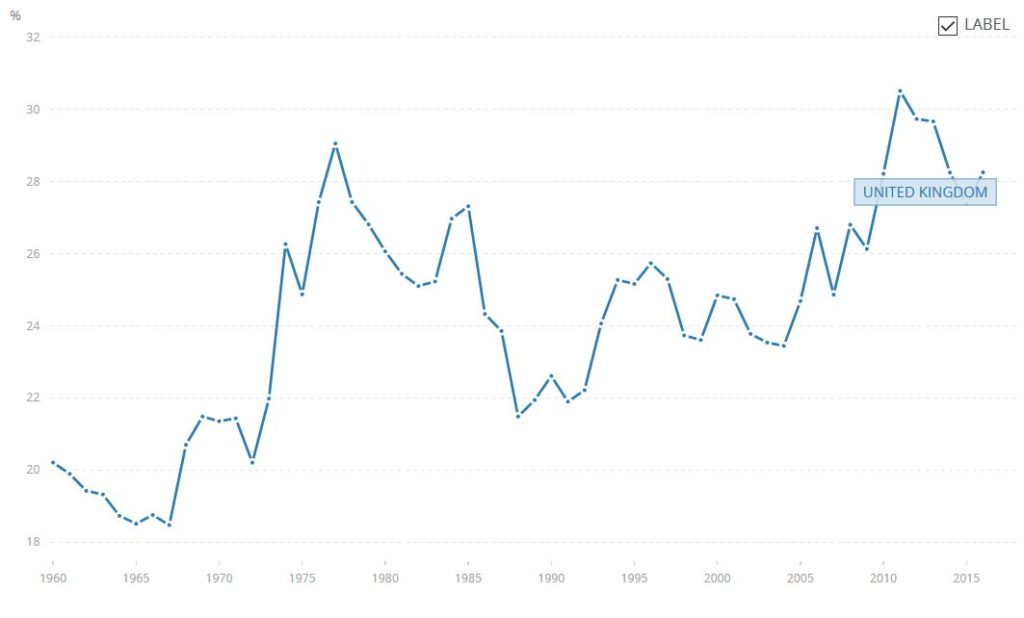The United Kingdom
The United Kingdom is an economic powerhouse not just for Europe but the world as a whole. Raking as the 5th largest economy in the world, the GDP of the UK is £1,963,311 which is equal to €2,230,929. The United Kingdom is moreover a highly globalized economy, relying largely on foreign direct investment (FDI). The remainder of the economy is augmented by imports, 30.3%, and exports, 28.3%.
The United Kingdom’s relationship with the European Union has been uncharacteristically volatile in recent years. Prior to the recent vote for the UK to leave the EU, Brexit, the UK has been member to the EU in all its forms for a considerable time:
Joining the European Economic Community, the UK was able to take advantage of the growing wave of abolitionism towards economic borders and tariffs. In 1973, the year the UK became a member of the EEC, exports skyrocket because the UK is now able to export to major trade partners with the previous tariffs waived.
Going forward into the 2010’s, the UK was the second largest economy in the EU and one of the largest financial contributors to the EU. This relationship became strained, however, as EU bureaucratic fees were on the steady increase in attempts of the EU to support other struggling member-states and exports began to decrease.
On 23 June, 2016, the UK government sponsored a referendum to those in the UK posing the question as to the UK should remain or exit the EU. In a shocking result contrary to the polled predictions, the UK voted to leave the EU in a 51.89% to 48.11% vote. This voting and the act of the UK’s leaving the EU became colloquially known as “Brexit.”
Though there were compelling economic reasons pushing the UK in favor of leaving the EU, there were a plethora of other justifications for the UK’s exit. The overall sentiment circulating throughout the population who voted in favor of leaving was that the EU was overstepping its bounds. For instance, many voted on the hope for increased national sovereignty, decreased bureaucracy, as well as increased control over domestic immigration.
The exact terms of Brexit are still being negotiated between Brussels and London; however, the determined date in which the UK will officially cease to be a member state of the EU is 29 March, 2019. Until then, the UK is strongly pushing for some sort of quasi-access to the EU’s regional free trade area (RFTA) while the EU is not willing to give very much leeway because the UK’s exit represents a large proportion of the EU’s funds in membership taxes withdrawn.

